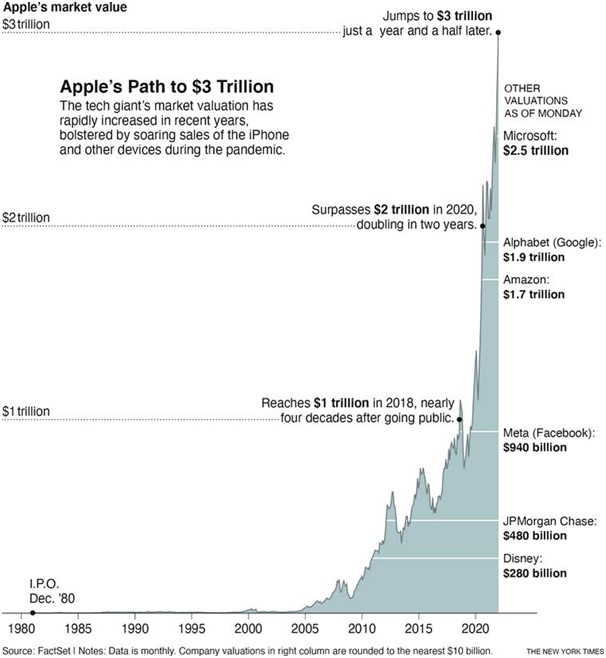Post-Trump Funding Cuts: A Global Battle For Scientific Talent

Table of Contents
Reduced Funding: A Stifling Effect on US Scientific Advancement
The reduction in research funding under the previous administration has had a profoundly negative impact on US scientific advancement, creating a chilling effect across numerous scientific disciplines. This diminished funding has far-reaching consequences, impacting not only the progress of ongoing research but also the potential for future breakthroughs.
Diminished Research Opportunities
Funding cuts have directly resulted in the cancellation or significant delay of crucial research projects. This is particularly noticeable in areas such as:
- Climate Change Research: Many long-term climate monitoring programs have faced budget reductions, hindering our ability to understand and address this pressing global challenge.
- Biomedical Research: Funding cuts have impacted research into critical diseases, slowing down the development of new treatments and cures. The delays in vital research directly translate to fewer potential life-saving advancements.
- Space Exploration: Ambitious space exploration initiatives have been scaled back or postponed due to budgetary constraints, impacting our understanding of the universe and our place within it.
The loss of these projects represents a significant loss of potential breakthroughs and innovations that could have had profound impacts on society. The limitations imposed by reduced research grants hinder scientific progress and jeopardize the US's position at the forefront of global scientific discovery.
Impact on Young Scientists and Early-Career Researchers
The impact on early-career researchers and postdoctoral fellows is particularly devastating. Securing research grants has become increasingly difficult, leading to limited job opportunities and forcing many talented young scientists to consider career changes outside of research. This "brain drain" affects the scientific pipeline, potentially jeopardizing future generations of researchers.
- Grant Application Challenges: Increased competition for dwindling research grants makes it harder for young scientists to establish their careers. The success rate for grant applications has plummeted, leaving many with limited funding options.
- Career Prospects: The uncertainty surrounding research funding creates instability, pushing many early-career researchers to seek more stable career paths in other sectors.
- Loss of Potential: The US risks losing a significant portion of its brightest scientific minds to other countries offering better opportunities and more robust research funding.
The Global Scramble for Scientific Talent: A New Landscape
The reduction in US research funding has created a global scramble for scientific talent. Countries and regions around the world are actively courting scientists displaced by the funding cuts, offering incentives designed to attract and retain top researchers.
Attractive Research Environments
Many countries are aggressively recruiting American scientists, offering:
- Higher Salaries: Competitive salaries are used to lure researchers away from the US, offering a more financially stable career path.
- State-of-the-Art Research Facilities: Countries investing heavily in scientific infrastructure are attracting scientists with access to the latest technology and equipment.
- Increased Funding: Substantial research funding ensures scientists can pursue their research without the constant threat of funding limitations.
Examples of countries actively benefiting from this situation include Canada, various European nations, and China, each providing attractive environments for scientists seeking better research opportunities and career stability. This "brain gain" for other nations represents a significant loss for the United States.
Geopolitical Implications
This shift in scientific talent has significant geopolitical implications. The loss of scientific leadership could negatively impact the US's technological competitiveness and its ability to address global challenges. Reduced international collaborations could also hamper scientific progress across the board.
- Technological Leadership: The exodus of scientists could hinder technological innovation and potentially impact the US’s global competitiveness in various sectors.
- Global Power Dynamics: The shift in scientific talent influences global power dynamics, potentially altering the balance of influence in critical areas like technology and innovation.
- Scientific Diplomacy: Reduced international collaborations can weaken scientific diplomacy and hinder efforts to address shared global challenges.
Strategies for Retaining and Attracting Scientific Talent
To reverse the brain drain and ensure the future of American science, a multi-pronged approach is necessary. This includes increased funding, improved research environments, and a renewed commitment to supporting early-career researchers.
Increased Funding and Investment
Increased government funding is paramount. This should encompass:
- Research Grants: A significant increase in the availability of research grants, with simplified application processes, is crucial for attracting and supporting researchers.
- Government Investment: Strategic investment in scientific infrastructure, equipment, and laboratories is necessary to create a more attractive research environment.
- Science Policy: A long-term commitment to sustainable funding, free from short-term political fluctuations, is vital for fostering a stable research ecosystem.
Improving the Research Environment
Addressing factors negatively impacting the work environment is also essential:
- Work-Life Balance: Addressing concerns related to work-life balance is crucial to attracting and retaining top talent. Providing flexible work options can be beneficial.
- Career Development: Implementing robust career development programs is crucial for supporting researchers at all stages of their careers.
- Research Infrastructure: Improving access to state-of-the-art equipment and resources will enhance the overall research environment.
Conclusion: Securing the Future – Combating the Brain Drain Through Strategic Investment in Scientific Talent
The post-Trump funding cuts have had a devastating impact on US scientific advancement, triggering a global competition for scientific talent. This "brain drain" threatens the nation’s technological leadership and its ability to address critical global challenges. To secure the future of American science, a renewed commitment to increased research funding, improved research environments, and strong support for early-career researchers is urgently needed. We must advocate for increased government investment in scientific research, ensuring the sustainable funding necessary to attract and retain the best scientific minds. Only through strategic investment in scientific talent can we prevent further losses and foster a vibrant and thriving scientific community. Let’s act now to protect our future by supporting research funding and nurturing the next generation of early-career researchers.

Featured Posts
-
 Gaza Crisis International Pressure Mounts On Israel To End Aid Blockade
Apr 29, 2025
Gaza Crisis International Pressure Mounts On Israel To End Aid Blockade
Apr 29, 2025 -
 Why Middle Managers Are Crucial For Company And Employee Success
Apr 29, 2025
Why Middle Managers Are Crucial For Company And Employee Success
Apr 29, 2025 -
 Fox News Faces Defamation Lawsuit From Trump Supporter Ray Epps Over Jan 6 Reporting
Apr 29, 2025
Fox News Faces Defamation Lawsuit From Trump Supporter Ray Epps Over Jan 6 Reporting
Apr 29, 2025 -
 Us Research Funding Cuts Spark International Talent Scramble
Apr 29, 2025
Us Research Funding Cuts Spark International Talent Scramble
Apr 29, 2025 -
 Accessibility And Affordability Examining Over The Counter Birth Control Post Roe
Apr 29, 2025
Accessibility And Affordability Examining Over The Counter Birth Control Post Roe
Apr 29, 2025
Latest Posts
-
 The Magnificent Sevens Fall Analyzing A 2 5 Trillion Market Value Decline
Apr 29, 2025
The Magnificent Sevens Fall Analyzing A 2 5 Trillion Market Value Decline
Apr 29, 2025 -
 Exclusive Ai Chip Development Huawei Takes On Nvidia
Apr 29, 2025
Exclusive Ai Chip Development Huawei Takes On Nvidia
Apr 29, 2025 -
 Russias Military Buildup Keeping Europe On High Alert
Apr 29, 2025
Russias Military Buildup Keeping Europe On High Alert
Apr 29, 2025 -
 Market Crash Seven Leading Stocks Shed 2 5 Trillion In Value
Apr 29, 2025
Market Crash Seven Leading Stocks Shed 2 5 Trillion In Value
Apr 29, 2025 -
 Chinas Huawei Unveils New Ai Chip Aiming For Nvidia Parity
Apr 29, 2025
Chinas Huawei Unveils New Ai Chip Aiming For Nvidia Parity
Apr 29, 2025
